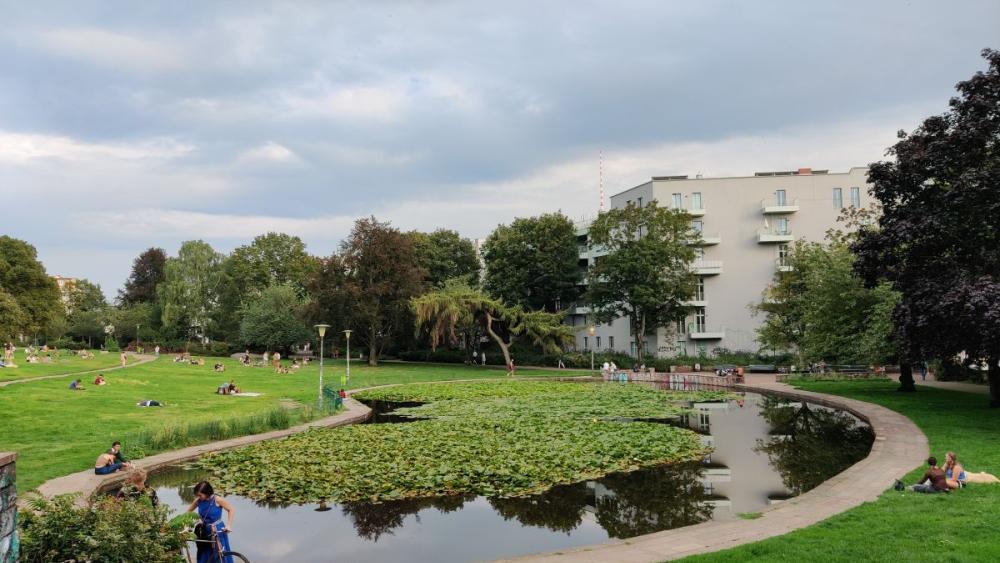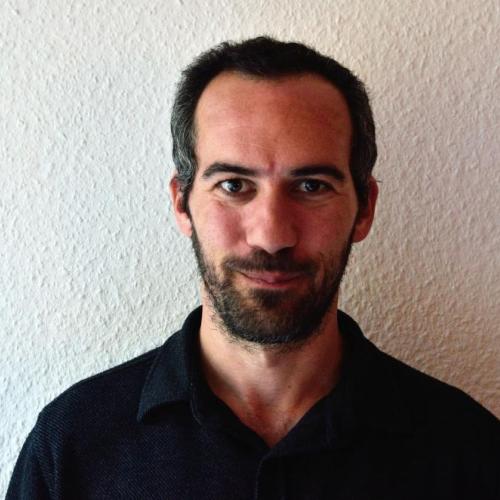Eco-evolutionary dynamics in urban ponds under artificial light at night
Short profile
Duration

Volkspark am Weinberg, Berlin. A typical city park pond, exposed to urban elements including light pollution (see the street light poles).
Photo credit: Nedim Tüzün
Artificial light at night (ALAN) has well-known detrimental effects on terrestrial ecosystems. However, its impact on aquatic systems, particularly urban ponds, remains unexplored. The MSCA-funded ECO-EVO ALAN project addresses this, studying the disruption of zooplankton and their diel vertical migration patterns (i.e. sinking during the day and surfacing at night). This behaviour controls algal growth, and disturbance by ALAN may lead to harmful algal blooms. The project focuses on the evolutionary adaptations of water fleas to ALAN and their potential influence on urban pond ecology. This research aims to predict the intricate effects of human-induced global change on ecosystems, offering valuable insights for future socioecological and socioeconomic considerations.





